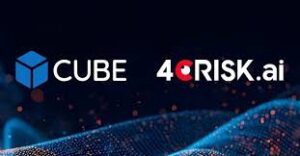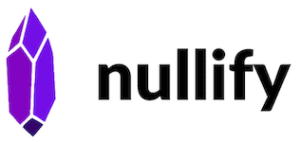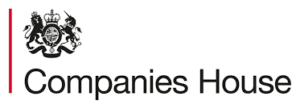Dentsu Hack Exposes Employee Bank, Payroll and Social Security Data

The Dentsu hack has exposed highly sensitive employee information including bank details, payroll records, and Social Security numbers, marking one of the most significant data breaches to hit the global advertising industry this year. The Tokyo-based advertising giant, which reported global revenue of approximately $9.2 billion in its most recent annual financials, disclosed the security incident on October 27, 2025, after detecting unusual activity within the network of its American subsidiary Merkle.
Merkle, a data-driven customer experience management company that operates across more than 30 countries with over 16,000 employees, serves as Dentsu’s primary vehicle for delivering digital marketing services to major corporations including Samsung, Kimberly-Clark, Sony, and Volkswagen. The breach has potentially impacted current and former employees across multiple regions, though the company has declined to specify which locations were most severely affected or provide precise numbers on compromised records.
According to internal communications reviewed by multiple news outlets, the compromised files contained names, bank and payroll details, salary information, National Insurance numbers, and personal contact details. The exposure of such comprehensive financial and personal data creates significant risks for affected individuals, who could face identity theft, targeted phishing campaigns, and financial fraud.
The company responded by immediately implementing its incident response protocols and taking portions of Merkle’s systems offline as a precautionary measure. Third-party cybersecurity firms specializing in data breach response were engaged to assist with the investigation and containment efforts. Law enforcement agencies were notified, and in the United Kingdom, the Information Commissioner’s Office and the National Cyber Security Centre were informed about the breach. Dentsu confirmed that its systems in Japan were not affected by the incident.
While the investigation remains ongoing, the Dentsu hack appears to have resulted in the theft of files rather than simple unauthorized access. The company stated in official communications that “certain files were taken from Merkle’s network” and that a review of those files determined they contained information relating to some clients, suppliers, and current and former employees. This language suggests that attackers successfully exfiltrated data from the company’s systems, raising questions about the extent of the breach and whether additional information beyond employee records may have been compromised.
One particularly intriguing aspect of the Dentsu hack involves the company’s statement that it “has taken measures to prevent the public disclosure of the data.” This carefully worded phrase has led cybersecurity observers to speculate about whether Dentsu may have paid a ransom to prevent the stolen information from being published on dark web forums or sold to other malicious actors. As of the time of reporting, no ransomware group has publicly claimed responsibility for the attack, which could indicate either that the incident was not a traditional ransomware operation or that negotiations with the attackers resulted in an agreement preventing public attribution.
The breach carries potential financial implications for Dentsu beyond any direct costs associated with incident response and victim notification. The company, which employs approximately 68,000 people globally across more than 140 companies in Japan and 580 overseas subsidiaries, acknowledged that some financial impact is expected, though the full extent will be determined as the investigation progresses. Dentsu has brought its systems back online and confirmed it is fully operational, suggesting that any operational disruption was relatively limited in duration.
Affected individuals are being offered a one-year complimentary membership to a credit and dark web monitoring service through Experian Identity Plus. The company has advised employees to closely monitor their financial statements and remain vigilant for suspicious communications that could represent phishing attempts leveraging the stolen data.
The timing of the Dentsu hack comes during a period of significant strategic uncertainty for the company. In recent weeks, the Tokyo-headquartered firm has appointed investment bankers to explore potential buyers for its international operations, signaling a possible major restructuring of its global footprint. The data breach adds another layer of complexity to these discussions, as potential acquirers will need to factor in the reputational damage, regulatory scrutiny, and potential legal liabilities associated with the security incident.
The Dentsu hack represents a concerning trend in the advertising and marketing services industry, where agencies increasingly handle vast quantities of sensitive client and employee data. Merkle’s positioning as a data-driven performance marketing agency made it a particularly rich target, given its access to both employee records and potentially sensitive client information.
The breach also highlights ongoing cybersecurity challenges facing large multinational corporations with complex subsidiary structures and distributed technology infrastructures. The Dentsu hack exposed vulnerabilities that can emerge when acquired companies are integrated. Dentsu acquired full ownership of Merkle in 2020 after initially purchasing a majority stake in 2016 for an estimated $1.5 billion. The integration of acquired companies’ technology systems and security protocols often creates vulnerabilities that sophisticated attackers can exploit, particularly when legacy systems from different organizations must be connected or when security standards vary across merged entities.
While Dentsu has emphasized that it maintains an established global cybersecurity program to assess and deploy security patches, manage vulnerabilities, and deploy anti-virus definitions across its enterprise, the successful breach of Merkle’s network suggests that either the attack was sufficiently sophisticated to bypass existing defenses or that gaps existed in the company’s security posture. The incident underscores why robust privacy technology and data protection frameworks have become critical infrastructure for modern enterprises, particularly those handling sensitive employee and client information at scale.
The breach illustrates the cascading consequences when privacy safeguards fail. Employee data, once considered primarily an internal HR concern, now represents a significant liability that can affect thousands of individuals across multiple jurisdictions, each with varying regulatory requirements and data protection standards. Organizations operating internationally must navigate complex compliance landscapes including Europe’s General Data Protection Regulation, California’s Consumer Privacy Act, and numerous other regional frameworks that impose strict requirements on how personal data is collected, stored, and protected.
Beyond regulatory compliance, privacy technology serves as a fundamental risk management tool. The ability to encrypt data at rest and in transit, implement zero-trust network architectures, deploy advanced threat detection systems, and maintain granular access controls can mean the difference between a contained incident and a catastrophic breach. The Dentsu hack demonstrates that traditional perimeter-based security models are no longer sufficient in an era where sophisticated threat actors employ advanced persistent threat tactics, social engineering, and zero-day exploits to penetrate even well-defended networks.
The human cost of inadequate privacy protections extends far beyond immediate financial losses. Employees whose Social Security numbers and banking details have been compromised may spend years dealing with the aftermath, monitoring credit reports, disputing fraudulent accounts, and living with the anxiety that their personal information is circulating in criminal marketplaces. For organizations, the reputational damage and loss of employee trust can prove even more costly than regulatory fines or litigation expenses, affecting talent recruitment and retention in an increasingly competitive labor market where cybersecurity practices have become a consideration for prospective employees evaluating potential employers.





